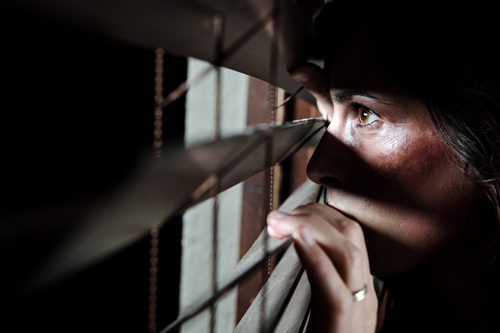Social anxiety disorder, SAD, is a common form of anxiety. Anxiety is caused by the idea of having to speak in front of people, be the center of attention, meet new people, or go into large groups of people. Drugs and alcohol are a common way to cope with social anxiety disorder as people feel liberated by the euphoric effect of lowering inhibitions. Other maladaptive behaviors like eating disorders are a distorted attempt at “compensating” for what someone perceives as imperfection (social anxiety disorder) with something which can be “perfected” like a body.
Anxiety About Rejection Because Of Anxiety About Rejection
Social anxiety is largely concerned with what others think. Feeling socially anxious is rooted in fears of abandonment and rejection, with the distinct (delusional) possibility of being publically humiliated by others. Personal insecurities can be part of this thought process. Mostly, the anxiety of being rejected by others is based on having anxiety itself. Social anxiety is perhaps one of the most affected mental health disorders by shame and stigma. People with social anxiety are afraid that others will discover their anxiety and just how anxious being around people makes them, as well as how anxious they are about being rejected because of that. Feeling ashamed of being anxious and being rejected for having anxiety is severely uncomfortable. Anxiety functions in the brain as part of the fight-or-flight system run riot. Fear builds on top of fear, creating a greater threat response in the brain and the body. In extreme cases, social anxiety can cause social isolation and withdrawal, inspiring someone to completely avoid social interactions whenever possible.
Feeling Alone Because Of Anxiety
Isolation in social anxiety is not the only cause of feelings of loneliness. Living with a mental illness like social anxiety can be an isolating experience. Coping with chronically anxious thoughts, experiencing anxiety attacks, and having deep fears of interacting with others are not common experiences. Until someone with social anxiety disorder seeks treatment, they are often unaware that many other people struggle with anxiety disorders which can be debilitating. Too many people with mental illness are unaware of how many others struggle. Even people who do not have a diagnosis can experience social anxiety and the severity of its symptoms in specific situations. More similar to phobias, situations like public speaking, networking, or large social events individually can cause social anxiety symptoms.
You are not alone if you are struggling with social anxiety disorder and co-occurring substance abuse or eating disorders. Long term care is proven to increase chances at lifetime recovery. LEAD Recovery Center offers multiphase transitional care options for men and women seeking total autonomy in their lives of recovery. For information, call us today at 800-380-0012.


